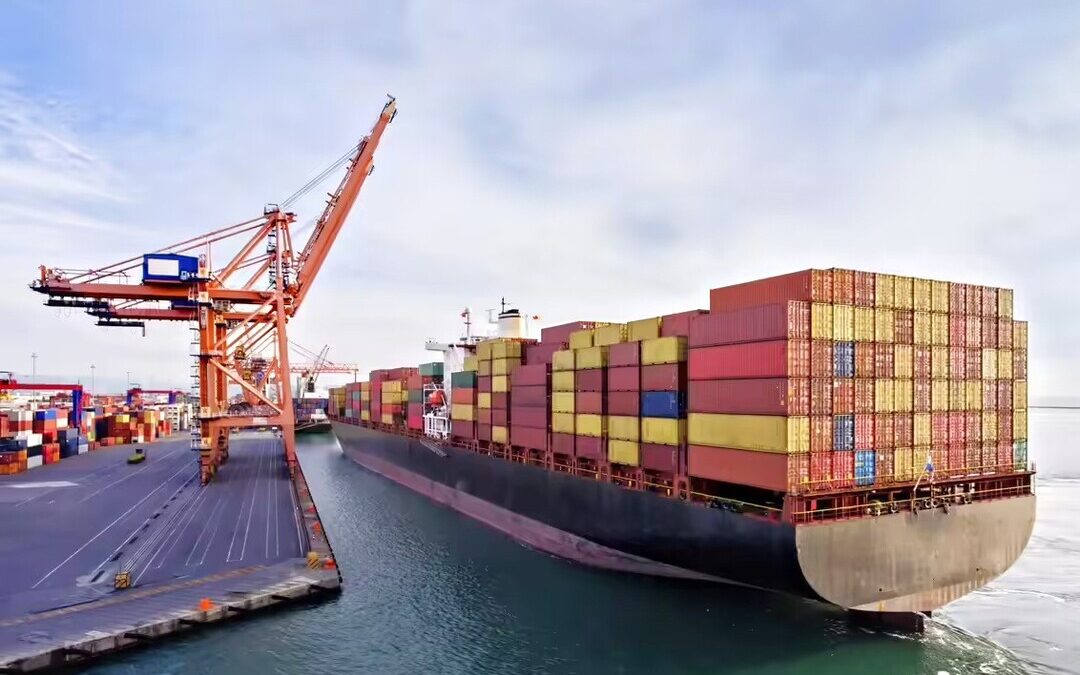India Urges Fair Play as EU Carbon Tariff Threatens $8.2B in Metal Exports
India urges equitable climate action as EU’s carbon border tax threatens export competitiveness and global trade fairness.
India’s steel and aluminum exports worth $8.2 billion to the European Union face significant risk from the bloc’s new Carbon Border Adjustment Mechanism, a landmark trade and climate action policy that Indian experts say could reshape global commerce and test climate equity principles.
The study, “EU Carbon Border Adjustment Mechanism: Dominant Perspectives in India,” published by the Council on Energy, Environment and Water on Wednesday, found that the CBAM could cost India $771 million in export losses, equivalent to a 0.72 percent drop in output to the EU.
The findings, based on interviews with 16 senior Indian stakeholders, highlight the potential for trade disruptions and highlight mounting concerns that the policy will disproportionately impact developing economies.
“The CBAM behaves less like a climate policy and more like a trade tool designed to protect European industries,” said lead author Harman Singh. “It undermines the spirit of fairness and trust that global climate action depends upon.”
Carbon Pricing and Domestic Reforms
Experts cited in the study called on New Delhi to accelerate the rollout of its new Carbon Credit Trading Scheme to cushion exporters against CBAM-linked costs.
They also urged the creation of a “carbon tax nomenclature” to consolidate existing fuel and coal levies into a transparent carbon price that could qualify for recognition under EU rules.
According to Singh, establishing a credible domestic carbon price is “critical for India’s competitiveness.” He said India’s carbon pricing framework must evolve to “not only meet domestic climate goals but also align with international compliance requirements.”
The European Commission’s omnibus amendments earlier this year clarified that carbon prices paid in non-EU countries would be recognized. Still, experts cautioned that wide price disparities between EU and Indian carbon allowances could limit the benefits.
MSMEs at Risk
The report warned that micro, small, and medium enterprises would bear the brunt of the CBAM’s compliance costs. Smaller exporters, lacking both financial and technical capacity, face challenges in meeting the EU’s demanding reporting and verification rules on embedded emissions.
“MSMEs risk losing competitiveness not because they pollute more, but because they can’t afford the bureaucracy,” Singh said. The report urged government-backed fiscal support and low-carbon technology assistance to help smaller firms transition to cleaner production.
Gaps in Measurement and Reporting
A major challenge identified is India’s limited capacity for measurement, reporting, and verification of emissions — a core requirement under the CBAM. While the EU allows default emission factors for exporters from countries without carbon markets, Indian respondents argued that even these provisions remain complex.
Experts recommended a unified national MRV framework to ensure Indian exporters can demonstrate emissions compliance. “Without a government-led MRV infrastructure, Indian exporters could find themselves priced out of key markets,” Singh said.
Trade and Diplomatic Implications
India, the EU’s largest trading partner after the United States, exported goods worth EUR 124 billion to the bloc in 2023, accounting for 17.5 percent of its total exports.
The CBAM, now in its transition phase, will impose full carbon levies starting in 2026, covering six high-emission sectors including steel, aluminum, and cement.
Between 2020 and 2024, India raised objections to carbon border tariffs 29 times at the World Trade Organization, second only to China and Russia. New Delhi has argued that the CBAM violates the principle of “common but differentiated responsibilities,” which grants developing nations greater flexibility in climate action.
Experts interviewed by CEEW said India should seek phased implementation timelines and revenue-sharing arrangements under the EU–India Free Trade Agreement currently being negotiated.
“If the EU is serious about fairness, a portion of CBAM revenues must be recycled back to affected countries,” Singh said.
Data and Privacy Concerns
The study also flagged risks surrounding the EU’s extensive data collection requirements for exporters. Indian officials have expressed concern that reporting rules requiring unit-level production and emissions data could expose commercially sensitive information.
“Such granular data collection, if misused, can weaken India’s negotiating position in trade and climate talks,” Singh said, calling for reciprocal transparency commitments from Brussels.
Fairness and Trust at Stake
A recurring theme in the report was the perceived erosion of trust between developed and developing nations. Indian experts said the CBAM disregards structural differences in industrial capacity, access to green finance, and technological readiness.
“Europe took decades to build its carbon market,” Singh said. “Expecting developing economies to match that trajectory overnight, without equivalent financial and technological support, is inequitable.”
Respondents also pointed to inconsistencies in EU policy, noting that the bloc’s restrictions on scrap metal exports under its Waste Shipment Regulation limit access to recycled materials — forcing Indian producers to rely on costlier virgin inputs and increasing their carbon footprint.
Calls for Cooperation, Not Confrontation
Despite widespread criticism, Indian experts viewed the CBAM as a potential catalyst for domestic reform and international cooperation. They urged the government to leverage the mechanism to strengthen its industrial decarbonization agenda through technology partnerships and climate finance.
“The CBAM can be an opportunity if India uses it to accelerate clean industry transitions,” Singh said. “But that requires Europe to engage with empathy and responsibility.”
The study concluded that India’s policy response must blend domestic reforms with assertive diplomacy by strengthening its carbon pricing architecture, developing MRV systems, and pushing for equitable treatment under global trade and climate action frameworks.
“Ultimately,” Singh said, “climate ambition cannot be achieved by exporting costs and importing mistrust. Cooperation, not coercion, must drive the global carbon transition.”
Also Read:
India’s Steel Exports Face $14.5B Carbon Hit by 2050 Thanks to EU CBAM: EY
India Urges Fair Play as EU Carbon Tariff Threatens $8.2B in Metal Exports
Nirmal Menon
Related posts
Subscribe
Error: Contact form not found.


